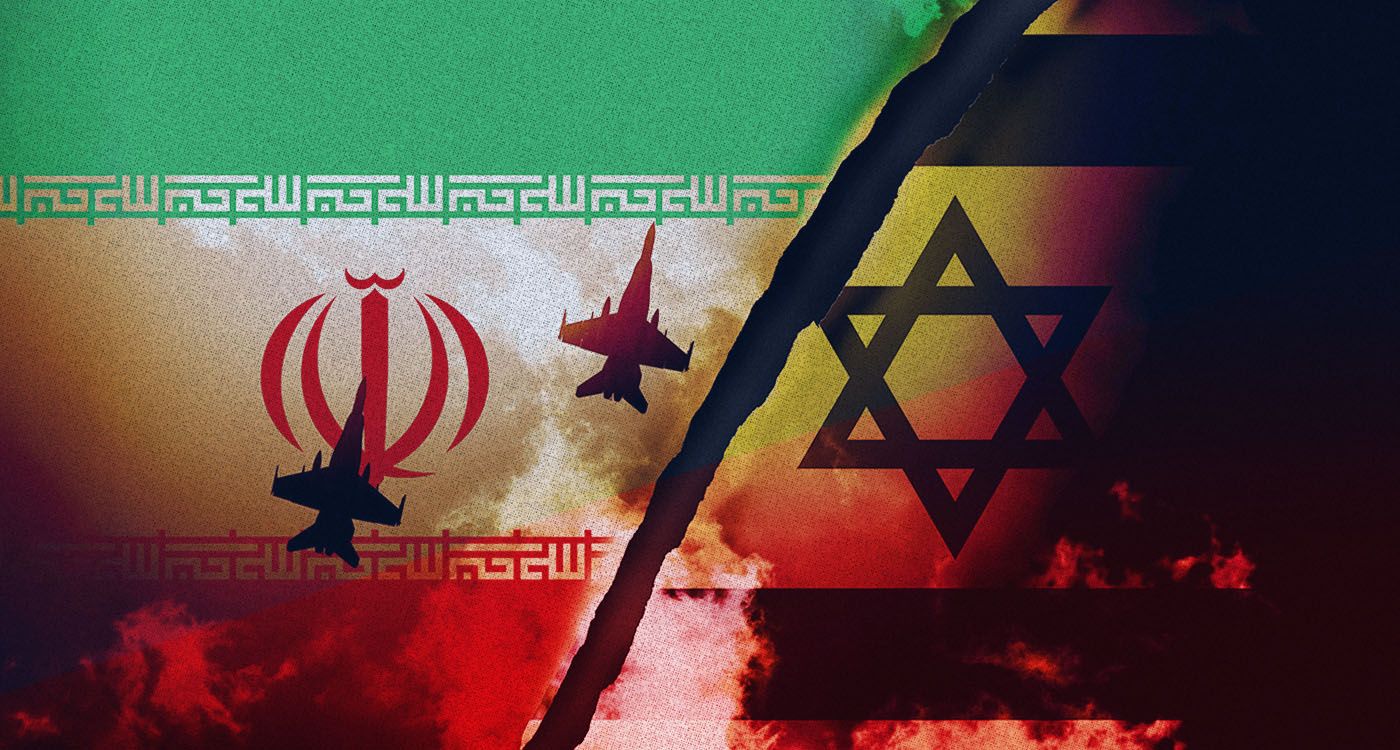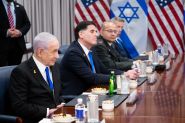- Home
- Middle East
- Striking the Head of the Snake

©This is Beirut
The past twenty months have been devastating for Iran's Arab proxies, and seen a major reversal of fortune for Iran's leaders. But until June 12, Iran had not faced an existential threat despite its evident weaknesses and miscalculations in the conduct of its regional war against Israel.
That reality changed overnight with Israel's dramatic assault on multiple targets -- nuclear and military -- in Iran, and expectations of further strikes. Yet, analysis in America is struggling to catch up. Commentators in the U.S. seem focused on whether Israel dealt a comprehensive blow to the nuclear program, or only a glancing setback. Others speculate on the likelihood of Iran mounting a massive retaliation leading to a full-blown war. They overlook the decapitation of Iran's military command and control and inability to meaningfully penetrate Israeli air defenses in April and October 2024. Still others think the Israeli action will compel Iran to rush across the nuclear threshold -- as if Israel and possibly America would not respond with an intensified counter-campaign. The Trump administration itself seems blandly to persist in the idea that a diplomatic nuclear deal with Iran is still attainable "before there's nothing left" (I thought that was the U.S. goal of the negotiations). It offered to proceed with the talks scheduled for Sunday in Oman. Iran promptly rejected that idea. White House officials may see this posture as an expedient way to look reasonable and avoid entanglement in the conflict. They may actually believe the attacks might condition a defeated Iran to finally compromise in the negotiations.
These analyses miss the point. The clerical regime is at an existential crossroads. If it is unable to retaliate against Israel effectively -- with blows on Israeli civilian and valuable military targets -- it will have set itself up for internal collapse. And while it is a mistake to predict military events with certainty, the evidence suggests Iran will be unable to mount such a response. Were it instead to choose to retaliate against closer targets such as American facilities in Bahrain and Qatar, it is likely not only to be thwarted, but to compel America to join in what will be even more devastating assaults on Iran's nuclear enrichment and weaponization facilities. A lesser step would be to attack Saudi or Emirati economic targets, but striking them would only reinforce the perception that Iran is helpless in the face of its true opponents. Least likely of all, if Iran's leaders choose to capitulate and return to talks in Oman with a more flexible state of mind, the Iranian people will see the regime for the hollow shell it has become. Whether or not it was Israeli leaders' intention, their action has brought Tehran to a moment of truth regarding regime change.
If Tehran's leaders cannot demonstrate an ability to respond in kind to Israel, or surrender their nuclear program because of external force, power will begin to shift in Iran. It appears the IRGC is no longer in a position to make coherent decisions or direct its assets. For example, who will lead and deploy the basijis, the thugs who enforce the unpopular regime's will against the populace? This process of collapse could take time or unfold quickly. The important thing is to keep striking the head of the snake that has destabilized the Middle East for almost half a century, and is finally facing an end.
America should tighten sanctions on energy exports from Iran, starve the regime of resources, and build a coalition of states that will close all avenues of relief. Explicit external talk of Iranian regime change at this juncture could be counterproductive, but the White House and its global allies and regional partners should prepare for and hasten that day.
Meanwhile, in Lebanon, the disarming of Hezbollah is overdue The waiting game Hezbollah adopted once US-Iran talks resumed is no longer viable. In the interest of its own community, it is time for it to voluntarily give up its arms, just as did every other wartime militia after the Taef agreement of 1989. It is time for Lebanese leaders -- even those once allied to Hezbollah -- to say publicly what many told me privately last week: Hezbollah is out of options.
Finally, great powers should always have ready an olive branch -- in this instance, not for the Iranian regime, but for the Iranian people. The destruction of their regime's means of regional and internal intimidation and terror can be a victory for them along with everyone else who lived in the shadow of Iranian threats. What happens next will be up to the Iranian people. That moment of truth may be imminent.
Read more




Comments